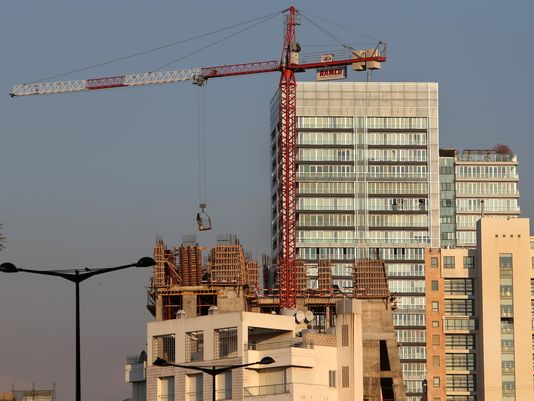Emma Gatten and Nadia Massih, Special for USA TODAY

BEIRUT, Lebanon — For more than two decades, the whirr of cranes and the hum of bulldozers have resounded through this capital city, as shiny new skyscrapers went up and buildings pock-marked by bullets and bombs came down. The redevelopment of Beirut’s downtown was intended to heal wounds from Lebanon’s 15-year civil war, with hopes to draw back the international jet-setters and high-fliers who frequented its swanky bars and exclusive beach clubs before the city center was reduced to rubble.
But these days, visitors are met with rows of shuttered shops, boarded-up restaurants and rent signs flapping in the wind following a spate of kidnappings and bombings over the past two years. "Business is very, very bad," said Ahmad Bushnaq, forlornly surveying his deserted restaurant underneath the Place D’etoile square’s clock tower — once among the most lucrative slices of real estate in the district. On this particular day, he had just one table for lunch.
Beirut’s downtown is a symbol of how the fortunes of this tiny Mediterranean country are at the mercy of regional influences.
The war in neighboring Syria, now rolling into its fourth year, threatens fragile ties that have kept the country united since a conflict that pitted Lebanon’s sects against each other came to an end in 1990. And with the Islamic State looking for access to the sea via the northern port city of Tripoli, instability in Lebanon could have repercussions far beyond its borders.
While Lebanon has so far managed to avoid sliding into another civil conflict, some say it’s unrealistic to expect the nation to regain its former place in the Arab world, a rank that included attracting visitors and capital from across the world to enjoy its designer stores, world-famous cuisine and its love of a party.
"Stability, or lack of it, in Lebanon is a function of the regional environment and its actors," said Hilal Khashan, a political science professor at the American University of Beirut. "The Lebanese are creative and industrious, but it would be nostalgic to expect Lebanon to regain its reputation as a regional hub."
The economy has taken a massive hit from the war in Syria. Where GDP growth was 10.3% in 2009, by 2013 it had reduced to just 0.9%. In September, the World Bank estimated that by the end of this year, the Syrian civil war will have cost the country $7.5 billion in economic losses that have hit tourism, trade and investment.
The country now has the highest per capita refugee population in the world, with 1.2 million Syrian refugees registered in a population of just 4.4 million. Last month, the government announced it would close its doors to all but the most dire refugee cases.
The refugees are mostly Sunni, shifting the delicate sectarian balance in the country, which is roughly equally split between Christian, Shiite and Sunni.
Hezbollah’s military engagement over the border on the side of President Bashar Assad, a patron and ally, has angered Lebanon’s Sunni population, many of whom identify strongly with the Sunni-majority opposition in Syria.
"The refugee influx has acted as a catalyst to speed up the worst tendencies (of) the country," said Makram Mallaeb, who headed the refugee program for the ministry of social affairs from 2013 until last month.
"Lebanon’s demographic balance is razor thin," he added. "We expect that, at best, up to 300,000 Syrians will remain after the conflict ends. That’s going to have an impact on the demography."
The widening sectarian fault lines in the country over the Syrian conflict is fueling support for Islamist groups, including the Islamic State, which took vast swathes of Iraq and Syria this year and killed thousands.
"There is no question that an unspecified number of radical Islamist rebels masquerade as Syrian refugees," Khashan said.
In Tripoli, Lebanon’s second-largest city and one with a predominantly Sunni population, the flags and insignia of Islamic State now appear. Mired in a cycle of poverty with Sunni disenfranchisement on the rise, the city is vulnerable to increasing militancy.
"If (political leaders) don’t invest in restructuring, they’re going to lose another generation," said Aram Neguizian, a senior fellow at the Center for Strategic and International Studies in Washington, D.C. "These more militant groups understand that if you offer to pay people, to put food on the table and to provide healthcare, people will sign up."
Lebanon is no stranger to political strife and conflict, and is known for its ability to bounce back, but there is real fear that this time might be different, Neguizian said.
"There’s a tendency to talk of Lebanon’s resilience," Neguizian said. "But it’s resilient until it’s not."



